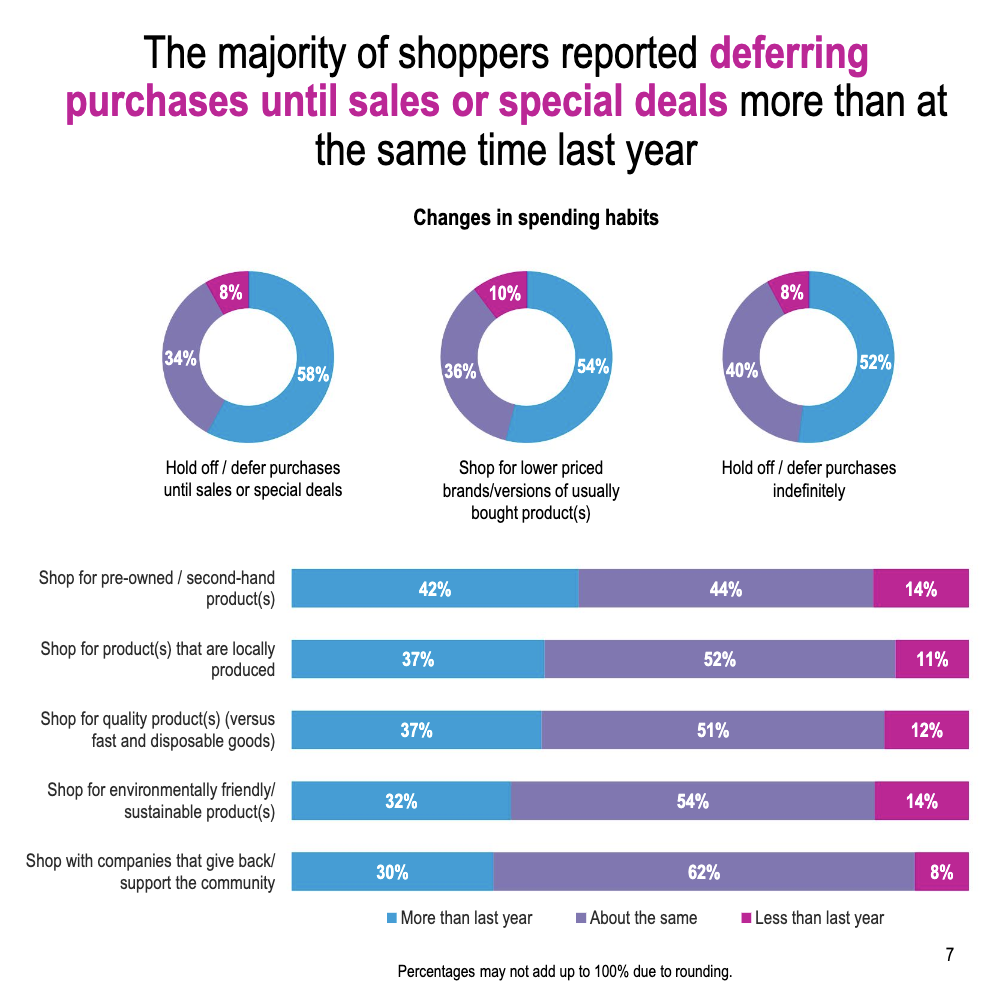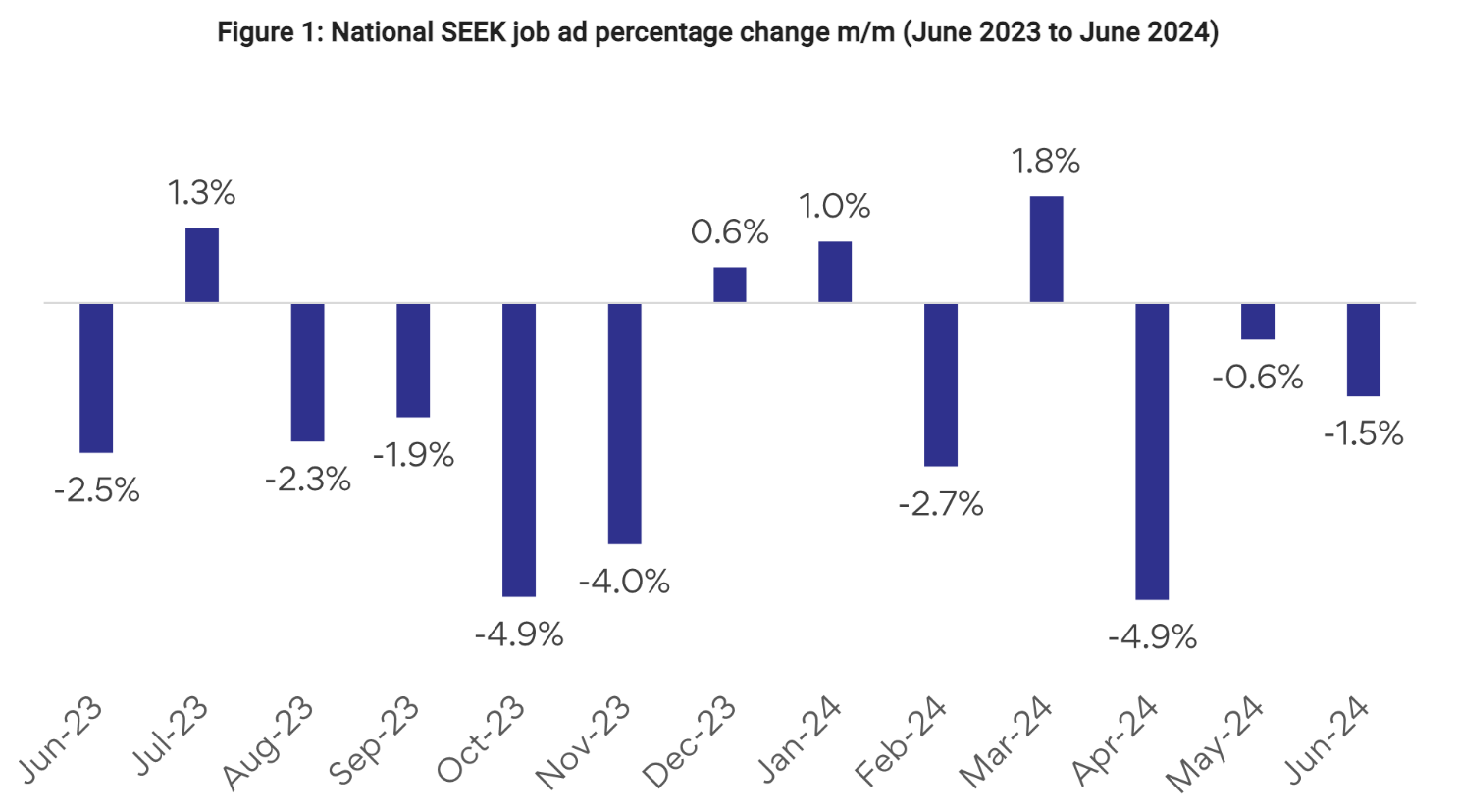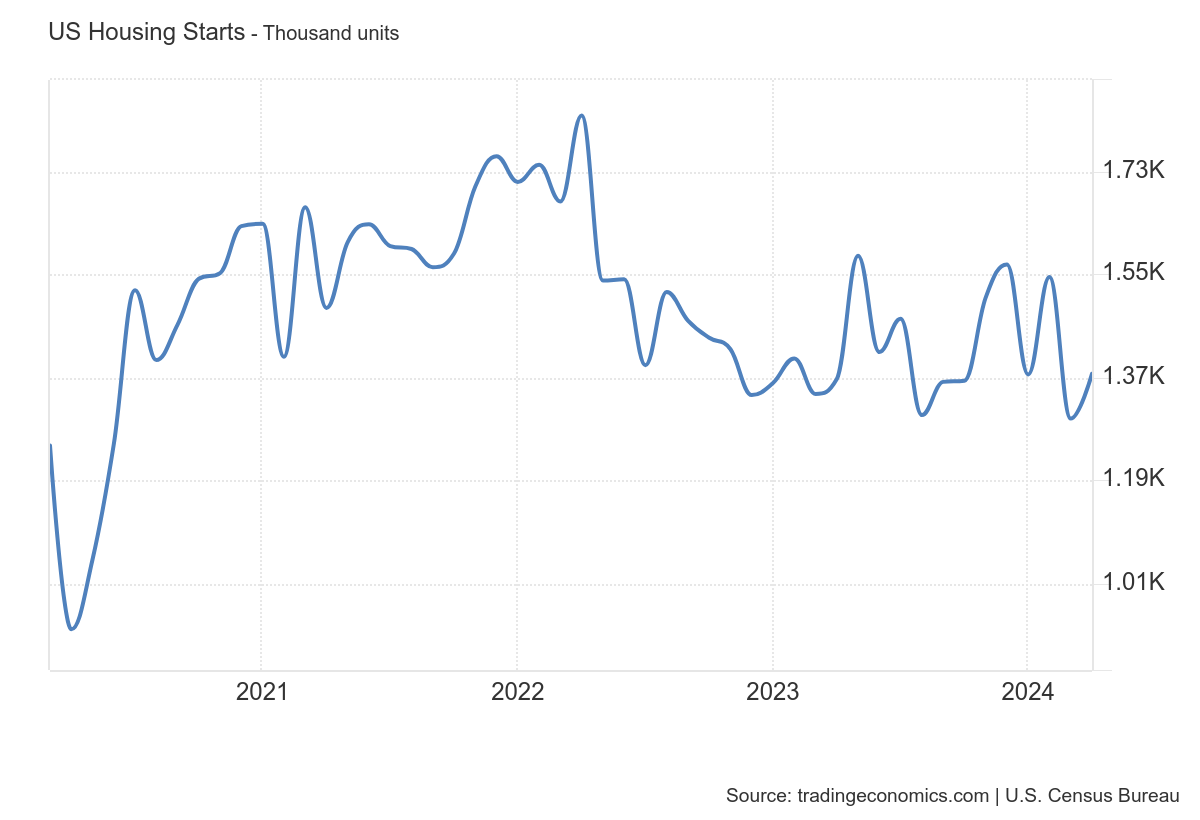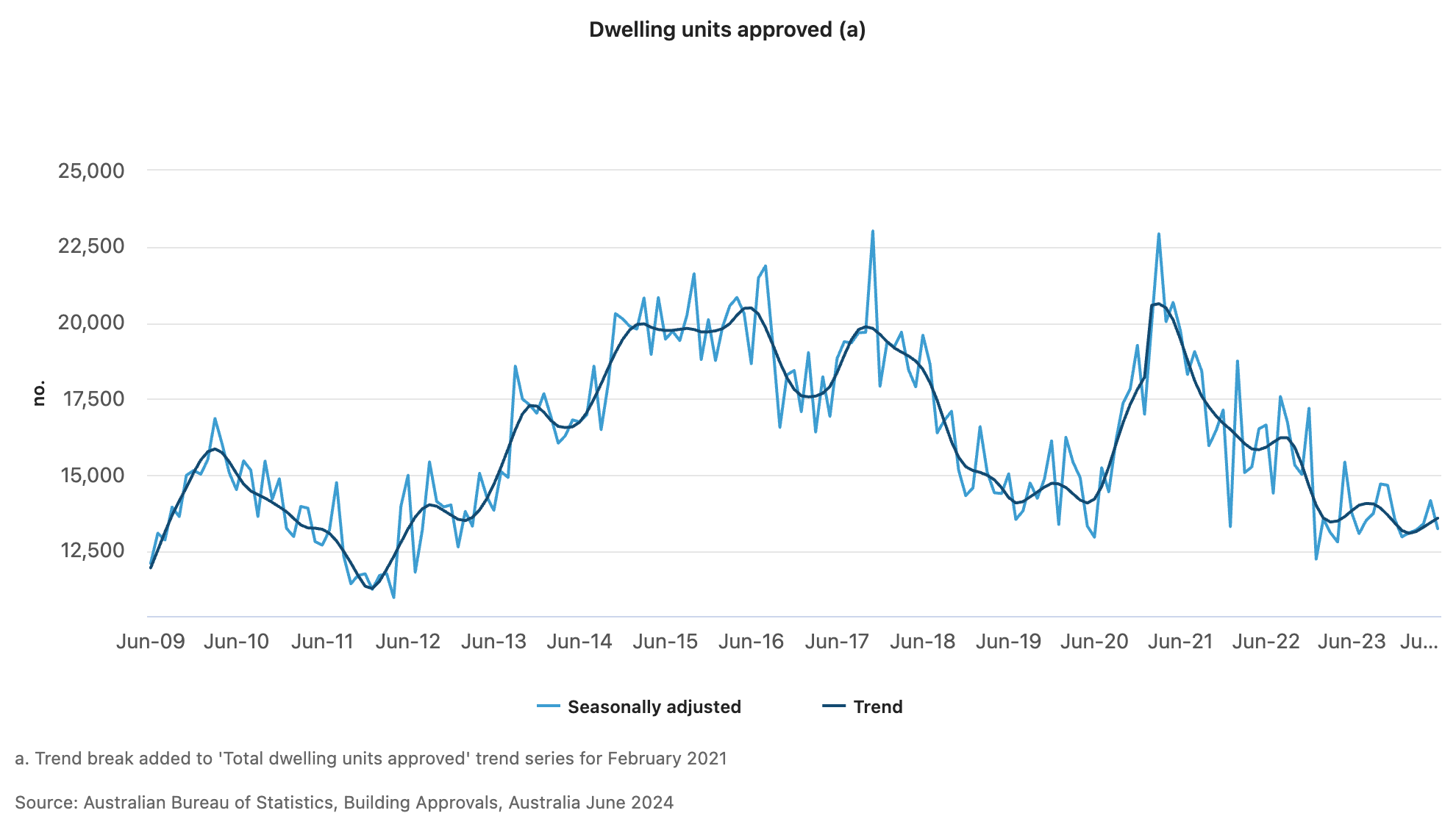What these 6 ASX company earnings say about the state of the economy
While eyeing inflation, unemployment, and retail sales data can tell you a lot about the recent trend of the economy, there is just as much value in discovering how companies are coping with real-time changes.
For instance, the economic data suggests that retail sales have slowed to multi-year lows and that consumer sentiment is still well below pre-pandemic norms. But don't tell that to Temple and Webster or JB Hi-Fi. Both retailers reported record results and JBH hit an all-time high off the back of its earnings.
In this wire, we'll dig beneath the data and compile what companies have been telling investors about the outlook for different parts of the Australian economy.
Let's start with the sector that is most exposed to the consumer - the retailers.
JB Hi-Fi (ASX: JBH)
- Total sales of $9.59 billion
- Net profit after tax (NPAT) of $438.8 million
- Earnings per share of $4.01/share and
- Total ordinary dividend for FY24 of $2.61/share
- In addition, a special dividend of $0.80/share
Group CEO Terry Smart began the media release with this remark:
"In this tough retail environment where customers are seeking value, our brands continue to resonate strongly driven by the trust customers have in our low-price best value proposition," Smart said.
But a dig beneath the headline numbers shows this slowing consumer in action. Australian sales grew by just 1% year-over-year, though Smart did note "that it is pleasing to see sales momentum in Australia continue into July" - implying that the slowdown has not worsened further (for now.)
The comment about "low price best value proposition" also stacks up with anecdotal research from Monash University, suggesting more than half of Australian shoppers reported holding off or deferring purchases until sales or special deals more now than they did this time last year.

Meanwhile, its Good Guys brand saw total sales decline by nearly 5%. Although the company reported that New Zealand sales grew by over 12% in the last financial year, that figure may not be sustainable. The Reserve Bank of New Zealand could cut interest rates at its meeting this week, following confirmation that the Kiwi economy is officially in a recession.
Temple & Webster (ASX: TPW)
- FY24 revenue +26% y/y to $498 million
- Active customers +31% to an all-time high of 1.1 million
- FY25 has started strongly with trading up 26% (1 July to 11 August data)
TPW's near-$500 million revenue figure is a fresh record for the company, one that management says represents "strong growth despite cyclical headwinds."
Even more remarkable, revenues for the first few weeks of FY25 are up 26% on this time last year. This growth appears to be driven by repeat customers, with 57% of all orders now coming from returnees. While this says much more about the company than it does about the macro environment, it does prove that consumers still have the willingness (and the cash) to remodel their homes.
Nick Scali (ASX: NCK)
- Group revenues -7.8% to $468.2 million
- NPAT -20.3% to $80.6 million
- ANZ written sales (i.e. the customer has placed an order and paid a deposit) +2.4% to $447.4 million
- Final dividend -5.7% to 33 cents/share
In some ways, Nick Scali serves as a stark contrast to Temple & Webster. At this furniture retailer, revenues and profits slumped and the dividend was cut. In addition, written sales, which are a reliable leading indicator for a business' top line, grew anaemically last financial year.
"Written sales orders for Australia and New Zealand were up 2.4% on FY23, and up 1.0% on FY23 on a like-for-like basis," management said.
On FY24 revenues, management said:
"...it is consistent with written sales order levels and typical delivery lead times. Revenue in the prior year benefitted from increased deliveries as the June 2022 order bank reduced with lead times returning to pre-COVID levels."
And while last year's number was consistent with their expectations, the signs are not as encouraging so far in FY25.
"Written sales order growth for June and July combined was -1.2% compared to the prior year," management said about Australia. For the UK, "written sales orders are down, affected by a combination of tougher market conditions, longer lead times due to supply chain disruptions, and commencement of store refurbishments. Trading is expected to deteriorate further in the first half of FY25 as disruption increases due to store refurbishments and changes in the product range."
Seek (ASX: SEK)
- Total revenues -17% to $1.16 billion
- EBITDA -13% to $483.1 million
- Adjusted NPAT -31% to $179 million
To this humble macro mind, this is the line that is most revealing from the media release.
"SEEK's headline financial outcomes for the year were impacted by a significant reduction in job ad volumes across APAC relative to previous record highs and the impairment of our investment in Zhaopin," CEO and MD Ian Narev said.
And while FY22 and FY23 did spur a record hiring spree, the drop was more than what analysts were expecting.
"Volumes reduced by 20% which was consistent with a range of employment indicators such as the rise in unemployment, and the slowdown in job vacancies and mobility," management added.
The month-over-month change can be seen here:

Narev added in his outlook:
"For FY25, economists are forecasting weaker macroeconomic conditions in most of our markets. Based on our historical experience of similar conditions, we have assumed that paid ad volumes in ANZ will continue to decline throughout FY25," he said.
Not exactly what investors want to hear when a) a soft landing is highly dependent on unemployment remaining relatively low and b) earnings expectations for so many firms were so high.
James Hardie (ASX: JHX)
- Q1 FY25 Net Sales +4% to $992 million
- Adjusted EBITDA +2% to $286 million
- Adjusted Net Income +2% to $178 million
- Adjusted Diluted EPS +4% to $0.41/share
For these last two, I thought it would be constructive to look at companies that tackle housing but from different angles.
James Hardie's result is a quarterly release but its comments on the US economic outlook are just as important as their comments on the Australian outlook. With that in mind, here is what CEO Aaron Erter had to say about both:
"We continue to expect the North American market for exterior products to be down low-to-mid-single digits over the course of our fiscal year, and now anticipate that the market backdrop will be particularly challenging during our fiscal second quarter," Erter said.
This outlook makes sense given US housing starts hit a four-year low recently. It means the construction of new homes is down meaningfully with a combination of high mortgage rates and increases in financing costs weighing on that economy.

The Australia-specific commentary was kept on the company's fibre cement product.
"Net sales decreased -2% in Australian dollars, due to a -9% decrease in volumes, partially offset by a +7% higher average net sales price. Lower volumes were primarily driven by weak market demand in Australia," they said.
Again, this also makes sense. Building approvals are well down from pre-COVID levels and show no signs of improvement - yet.
.png)
Mirvac Group (ASX: MGR)
- Operating profit after tax -5% to $552 million
- Operating EBIT +12% to $860 million
- Full-year distribution of 10.5c/share, representing a 75% payout ratio
- All figures are in line with the company's previously issued guidance
Much like James Hardie, Mirvac has been hit by rising building costs, a slump in approvals, and a restricted housing market.
"Earnings are expected to be lower next year, reflecting the impact of a lower contribution from our development business and higher net interest costs related to development activities," management said.
Nonetheless, it is issuing FY25 EPS guidance of 12c/share to 12.3c/share and an FY25 distribution guidance of 9c/share.
"While market conditions are likely to remain challenging in FY25, we are setting ourselves up for recovery," they added. "There is significant value to play for and multiple drivers of earnings growth in FY26 and beyond."
2 topics
6 stocks mentioned

